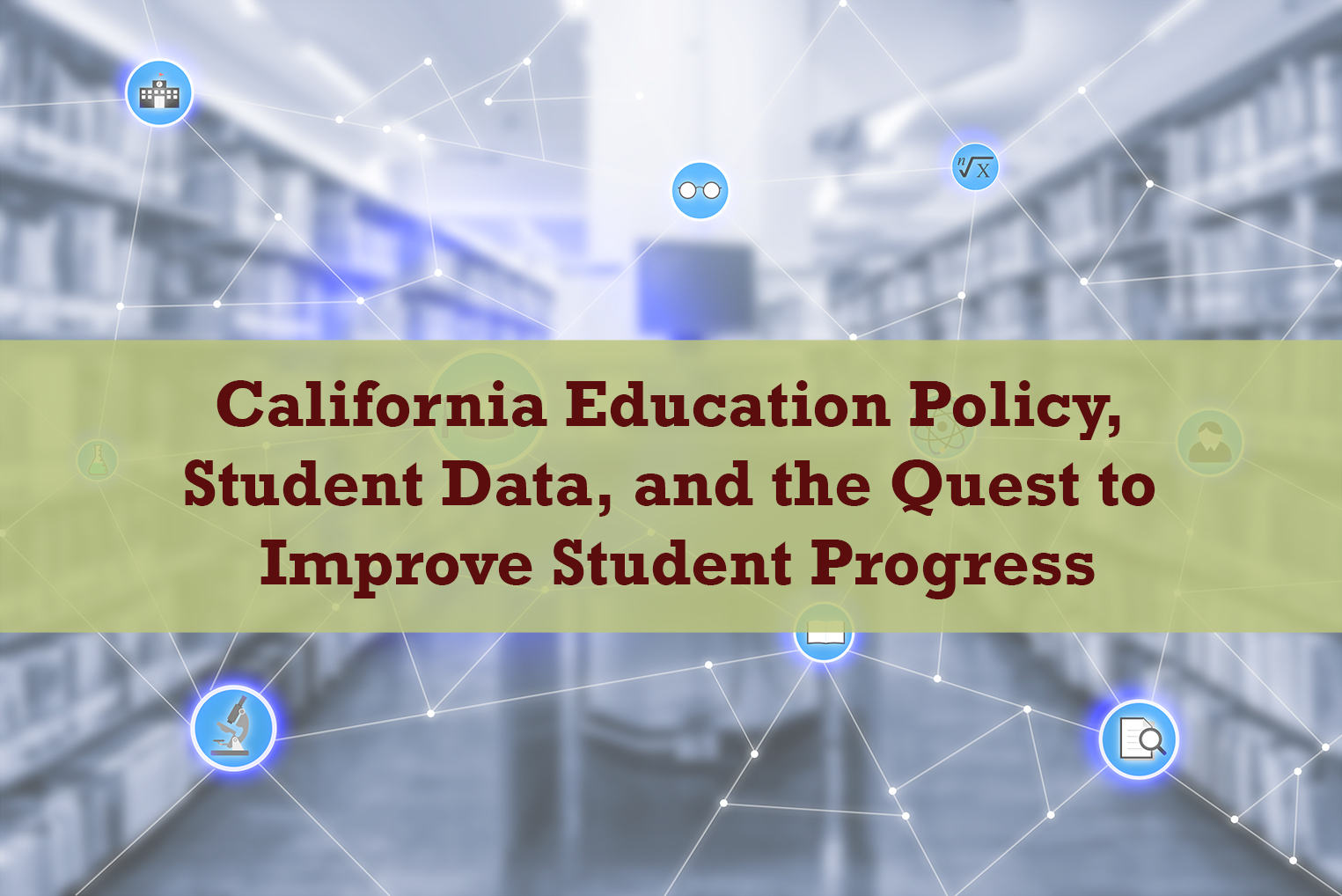California collects expansive sets of data about students in its public K-12 and higher education systems— data that, collectively, have great potential to meet the information needs of state policymakers, local educators, and other stakeholders. But the data are collected and maintained in systems that are not connected, were designed for different purposes, are subject to different regulations, and often use different data definitions. As a result of these disconnects, important information about student progress is often impossible to access, share, and use—whether at the state, regional, or local level. While there may be a few benefits to the current structure, they are outweighed by major disadvantages, including inefficient use of taxpayer dollars. A significant weakness is that California’s current approach leaves the state and its institutions unable to answer important question about student progress and outcomes. At least six efforts in recent years have failed to create a new entity that can oversee data collection and use in California. This brief seeks to make clear the missed opportunities the state has had with regard to understanding its investments in public education.
View or Download PDFThis brief is the second in the series California Education Policy, Student Data and the Quest to Improve Student Progress, which examines California’s approach to gathering and sharing data on student progress through the public education system.

REPORTS IN THE SERIES
Brief 1: Gaps in Perspective: Who Should Be Responsible for Tracking Student Progress Across Education Institutions? An analysis of the perspectives of state and local leaders on who should be responsible for gathering and sharing data about students’ progress.
Brief 2: California’s Maze of Student Information: Education Data Systems Leave Critical Questions Unanswered. An overview of student-level data collected and maintained in California, a summary of past efforts to develop a more comprehensive system, and an exploration of the strengths and weaknesses of the state’s approach to education data.
Brief 3: Scaling Goodwill: The Challenges of Implementing Robust Education Data through Regional Partnerships. An analysis of some local and regional efforts to share data across institutions and systems that includes the benefits and challenges of participating in these efforts.
Brief 4: A Hunger for Information: California’s Options to Meet its Statewide Education Data Needs. An exploration of lessons for California from other states’ efforts to improve their education data systems, and some conclusions concerning a path forward to improve California’s data systems for use in understanding and improving education policy and practice.

